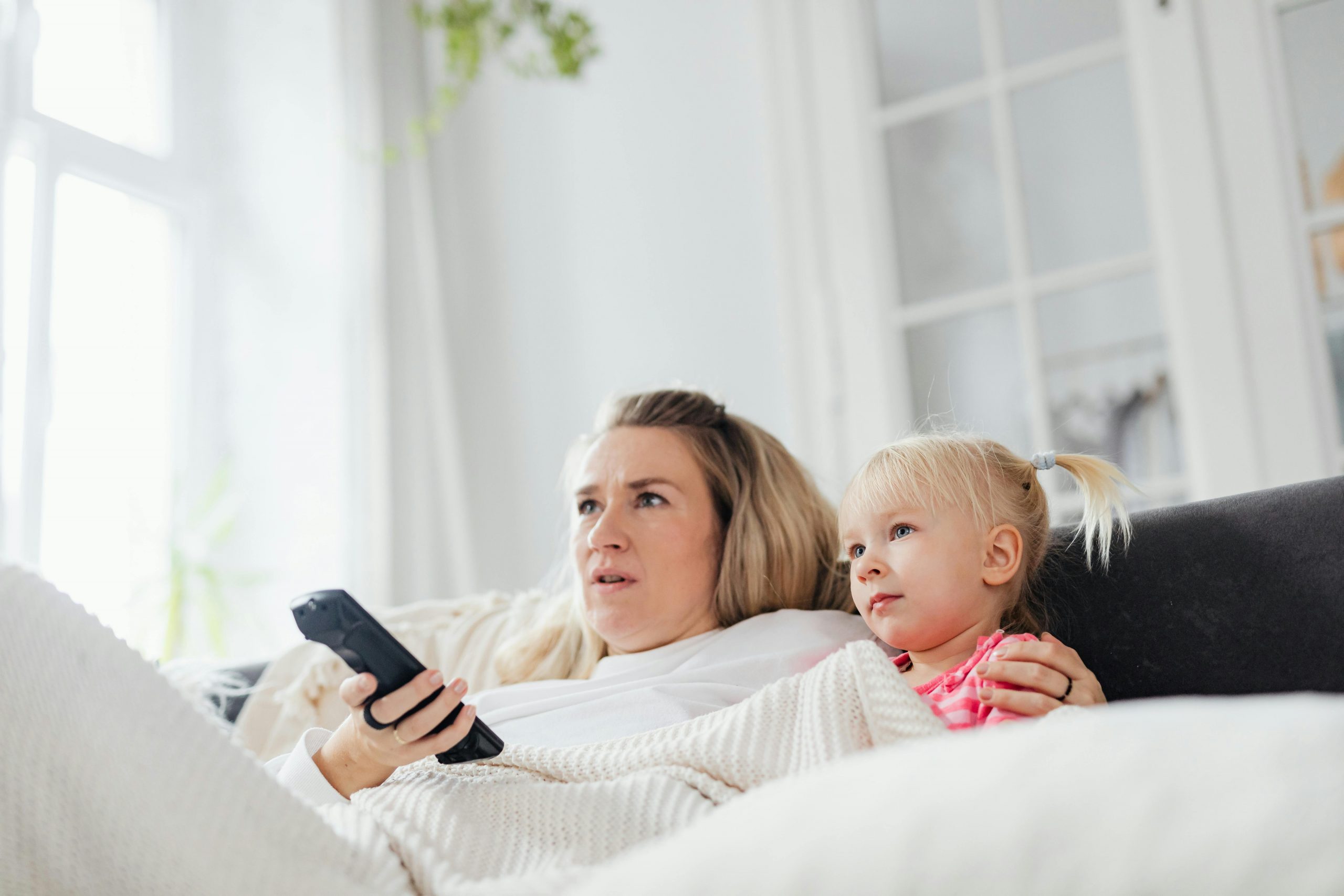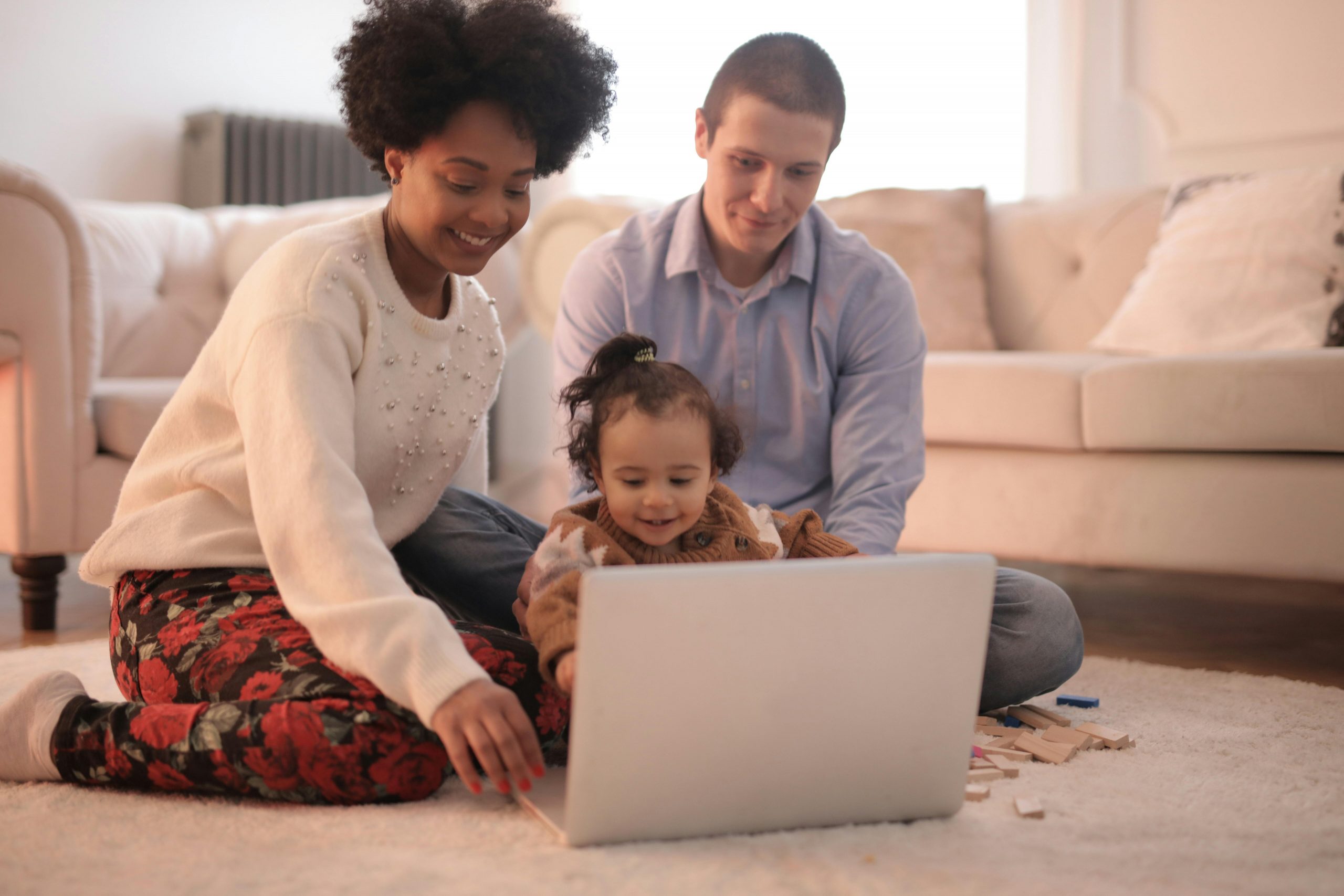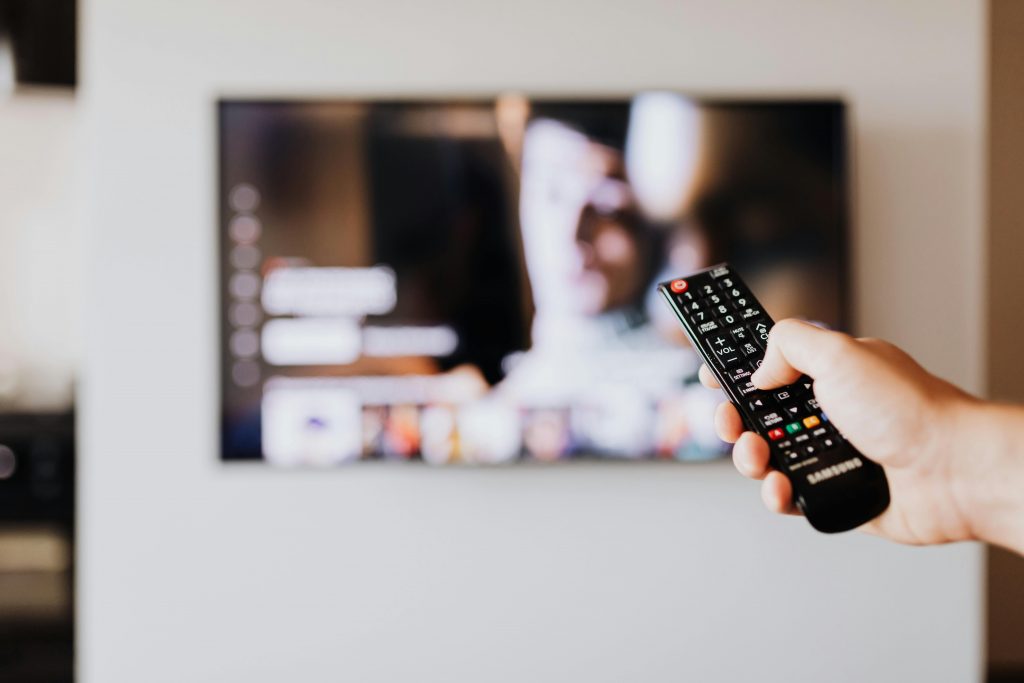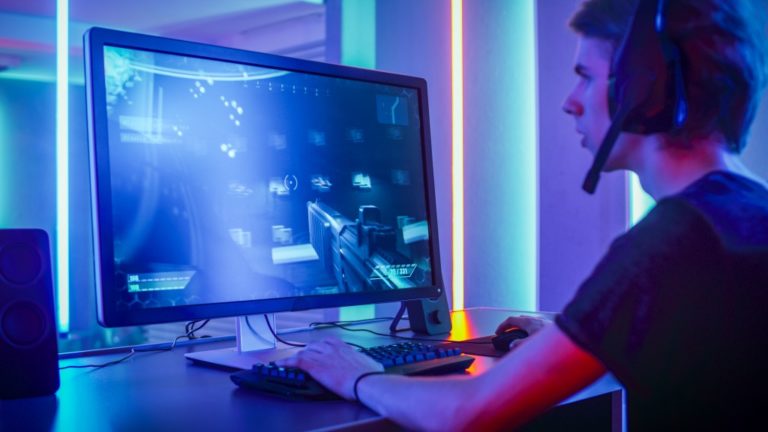Many parents wonder if it’s okay for their baby to watch TV. After all, it’s common to see screens everywhere—from TVs to tablets to smartphones. And sometimes, letting a baby watch a show feels like the only way to grab a break. But is it bad for babies to watch TV?
The short answer is yes—too much screen time can be harmful for babies. In this article, we’ll explore what the research says, how TV affects baby development, and what parents can do instead. Our goal is to help you make informed, healthy choices for your child.
Why Babies and Screens Don’t Mix Well

Babies’ brains grow rapidly in the first few years of life. During this time, they learn by interacting with people, exploring their surroundings, and experiencing the world through all five senses. Screens, including TVs, don’t provide the same kind of rich learning.
Here’s why experts say babies under 18 months should avoid screen time (other than video chats with family):
1. Limited Interaction
TV shows and videos are one-way. Babies don’t get to ask questions, get responses, or explore physically. Real-life interactions—like talking, singing, or playing with a caregiver—help babies develop thinking and communication skills.
2. Delayed Language Development
Studies show that babies who spend more time in front of screens often start talking later. When babies watch TV instead of hearing real conversations, they miss out on the back-and-forth “serve and return” communication that builds vocabulary and understanding.
3. Weakened Attention Skills
Fast-paced TV shows can overstimulate babies’ brains. This can lead to shorter attention spans and make it harder for them to focus as they grow. Real-world play, like stacking blocks or turning pages in a book, helps build focus and problem-solving.
4. Sleep Disruption
Screen time, especially before bed, can make it harder for babies to fall asleep and stay asleep. The blue light from screens tricks the brain into thinking it’s still daytime, which lowers melatonin levels and interferes with sleep.
What Do Pediatricians Recommend?
The American Academy of Pediatrics (AAP) recommends:
- No screen time for babies under 18 months (except for video chatting).
- Limited, high-quality programming for toddlers 18–24 months, with a caregiver watching and talking about the content.
- 1 hour per day max for children aged 2 to 5, with supervision.
The main idea: babies learn best through hands-on, real-life interaction—not screens.
Is It Ever Okay for a Baby to Watch TV?

Let’s be realistic: in today’s busy world, screens are hard to avoid. A few minutes here or there won’t harm your baby, especially if they’re not left watching alone. But it’s important to avoid making TV a regular habit.
Occasional screen use is less likely to cause harm if:
- The baby is not left alone to watch.
- The content is slow-paced, simple, and age-appropriate.
- A parent or caregiver is present, talking and engaging with the baby.
- It’s not used during meals or right before bedtime.
Video chatting with family or friends is okay, even for babies under 18 months. It supports bonding and helps babies recognize faces and voices.
The Impact of Background TV
Even if your baby isn’t actively watching TV, having it on in the background can still affect development. Background TV:
- Distracts babies from playing and learning.
- Reduces the quality of parent-baby interaction.
- May lead to lower attention spans later in life.
Try to turn off the TV during playtime or family meals, even if you’re just “half-watching.” This creates a better environment for your baby to learn and grow.
How Does TV Affect Brain Development?
Babies’ brains are like sponges. The first three years are a critical window for learning. During this time, the brain builds trillions of connections, or synapses. These connections form through experience—by seeing, touching, hearing, and moving.
When a baby spends too much time in front of a screen:
- They miss chances to crawl, reach, roll, or explore physically.
- They hear fewer real words from people.
- They miss out on emotional cues, facial expressions, and reactions from others.
All these missed experiences can slow down language, emotional, and physical development.
What If My Baby Loves Watching TV?
If your baby seems interested in the screen, it’s because screens are bright, colorful, and noisy. These features easily grab attention—but they don’t offer the same depth of learning as real-world interaction.
Here’s what you can do instead:
- Read books together. Even if your baby doesn’t understand the words, hearing your voice is comforting and educational.
- Sing songs and nursery rhymes. Music and rhythm help with memory and language.
- Let them explore safely. Place toys on a clean blanket or playmat and encourage movement.
- Talk to your baby often. Describe what you’re doing, what they’re doing, or what’s around you. It helps build vocabulary and connection.
What to Do When You Need a Break
Every parent needs a break now and then. That’s okay. Here are a few screen-free ideas for keeping your baby safely entertained:
- Set up a safe play area with toys, soft books, or baby mirrors.
- Play calming music in the background.
- Use a baby swing or play gym for short periods while you recharge.
- Ask for help. A friend or family member can step in while you take a few minutes for yourself.
Remember, caring for yourself helps you care better for your child.
Screen Time and Behavior Issues
Research suggests that too much screen time in early childhood is linked to:
- More tantrums
- Delayed social skills
- Increased risk of ADHD-like symptoms
Why? Because screen time often replaces the kind of play and connection babies need to learn how to manage emotions, solve problems, and get along with others.
That doesn’t mean one cartoon will cause issues. But building daily routines around real interaction—not screens—makes a big difference over time.
What About Educational Baby Shows?
Some shows claim to be educational for babies, but studies show that babies under 2 learn more from real people than from screens. Even shows with letters, numbers, or music are no match for a parent reading a book or playing peek-a-boo.
If you do choose a show, make it count:
- Choose slow-paced, simple shows with no loud or scary content.
- Watch together and talk about what you see.
- Turn off the screen when the show is over.
How to Handle Screen Time When Visiting Others
It’s not always easy to stick to your screen-time limits when you’re out of your normal routine. Maybe you’re visiting relatives or friends who keep the TV on in the background or offer a cartoon to calm your baby.
Here’s how you can handle these moments:
- Be honest and polite. Let others know you’re trying to keep your baby’s screen time low.
- Offer alternatives. Bring a few favorite toys or books to keep your baby busy.
- Join in if needed. If a screen is on, engage by talking about it to make it more interactive.
Being clear about your values helps others respect your parenting choices.
TV and Meal Times: Why It’s Best to Avoid It
Many families turn on the TV during meals, but doing so with a baby can cause more harm than good.
Here’s why screen-free mealtimes are best:
- Better focus on eating. Babies need to learn when they’re full—not eat just because they’re distracted.
- Stronger family bonding. Mealtimes are a chance to connect with eye contact and conversation.
- Less picky eating. Babies are more open to trying new foods when they focus on the meal instead of a screen.
Start early by keeping TVs and phones off at the table. Your baby will grow up seeing meals as a time to connect—not zone out.
How to Transition Away from Screen Time
If your baby is already used to watching TV every day, don’t stress—it’s never too late to make changes. Here’s how you can gently reduce screen use:
- Make changes slowly. Reduce screen time little by little, replacing it with another fun routine like reading or going outside.
- Stick to a daily routine. Set times for play, naps, and meals, so your baby learns what to expect.
- Stay consistent. Even if your baby fusses, stick with the plan. They’ll adapt over time.
- Praise small wins. Celebrate when your baby plays quietly or reads a book instead of reaching for a screen.
Consistency and patience go a long way in creating healthier habits.
Creating a Healthy Media Routine
If your baby is 18 months or older, and you’re considering introducing some screen time, here’s how to do it in a healthy way:
- Stick to short, scheduled times.
- Choose age-appropriate content. Look for shows from PBS Kids or other trusted sources.
- Watch together and talk about what’s happening on screen.
- Keep screens out of bedrooms and mealtimes.
- Be a role model. Babies learn from watching you—if they see you using screens all the time, they’ll want to do the same.
Final Thoughts
So, is it bad for babies to watch TV? The research is clear: frequent or unsupervised screen time in the first 18 months can affect brain development, behavior, sleep, and learning. Babies learn best through real-world experiences—talking, touching, moving, and bonding with the people around them.
While a few minutes of screen time here or there won’t ruin your baby’s development, it’s important not to rely on TV as a regular babysitter. Focus instead on creating a screen-free environment that encourages exploration and connection.
If you’re ever in doubt, remember: you are your baby’s best teacher.

















